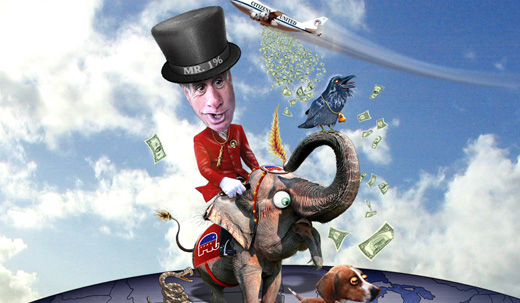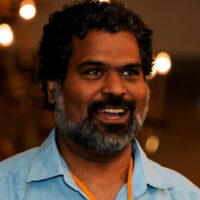
Fifty years ago John F. Kennedy became the first Catholic elected as president of the United States. Today it’s hard to believe that one once had to be a Protestant to hold high office.
We still have a long way to go before Congress reflects the diversity of the country in terms of race, gender, socioeconomic class or, yes, religion, but things are improving.
Among many others, this year’s election has had several historic firsts when it comes to religious diversity. Hawaiian voters sent the first Hindu to Congress (Iraq vet Tulsi Gabbard) and the first Buddhist to the Senate (Mazie Hirono, who is also the first Asian Women in the upper house). Both major parties’ vice presidential candidates were Catholic, another first.
But perhaps the most important religious breakthrough of the election is the non-issue of GOP candidate Mitt Romney’s Mormonism. Romney is a devout member of the Church of Jesus Christ of Latter-Day Saints (LDS), popularly known as the Mormon Church.
While there was a lot of hand wringing in the media about Romney’s faith in the Republican primaries, it did not prevent him from winning his party’s nomination, making him the first LDS Presidential candidate of a major party.
But in the end Romney’s defeat by President Obama had nothing to do with his religion.
Perhaps the initial fears were warranted. Many evangelical Christian denominations do not consider Mormons to be Christian and polls showed that a whopping 18% of voters would not vote for a Mormon candidate. Some Republican surrogates tried to question Romney’s faith during the primaries, but the predicted flood of shadowy anti-Mormon ads never really materialized.
Conservative voters, even those suspicious of Mormonism, seem to have rallied behind Romney regardless of his religion. Even the dean of evangelical ministers, Billy Graham, embraced Romney, meeting with the candidate in the run-up to the election and removing references to the LDS Church as a “cult” on their website.
Romney is certainly the most well known Mormon candidate in U.S. history, but there is a long history of Mormon’s in national politics. Democratic Senate Majority Leader Harry Reid is a Mormon. Mitt Romney’s own father, George W. Romney, was governor of Michigan and made an abortive presidential run in 1964. Many Mormons have served in the U.S. Cabinet: Mike Leavitt, Secretary of Housing and Human Services; Stuart Udall, Secretary of the Interior; Ezra Taft Benson, Secretary of Agriculture (who went on to become president of the LDS Church), to name a few. Ivy Baker Priest was U.S. Treasurer.
Joseph Smith, who founded of the LDS Church in 1830, ran for president in 1844, but he and the Mormon faith were unknown nationally. Even today, though Mormonism is the fourth largest Christian denomination in the U.S. with over six million members, many Americans still don’t know or understand what the LDS Church is. According to polls only 57% of voters even know Romney is a Mormon.
Despite this election season being what some called a “Mormon moment,” Romney’s campaign avoided the specifics of his religious beliefs as much as possible. Despite rumors that the Republican National Convention would embrace Romney’s LDS faith, it offered only a brief – but humanizing – glimpse into Romney’s past as an LDS Bishop and Boston Stake President and experience as a missionary in France.
While we don’t have a Mormon president today, it appears from exit polls and anecdotes that it was opposition to Romney’s policies that was the basis of his defeat, not his faith. Romney’s anti-immigrant, anti-union and anti-women politics, his dismissal of 47% of Americans, history with Bain and plans to gut government services was repellant not his religion. And as Harry Reid pointed out, Romney’s political values aren’t a reflection of Mormonism any more than Paul Ryan’s reflect the Catholic social justice teachings.
The fact is Mormons like people of all faiths come from across the political spectrum.
We may never know how many (if any) voters sat out the election because of Romney’s faith, but what is clear is that his Mormonism was never a campaign issue nor should it be. We may not be free of religious bias in the U.S. Candidates from outside the Judeo-Christian tradition, let alone atheist politicians, continue to face real challenges. What is clear is that for most people in the U.S., a candidate’s faith is not as important as their ideas and policies.
Photo: Creative Commons 3.0












Comments